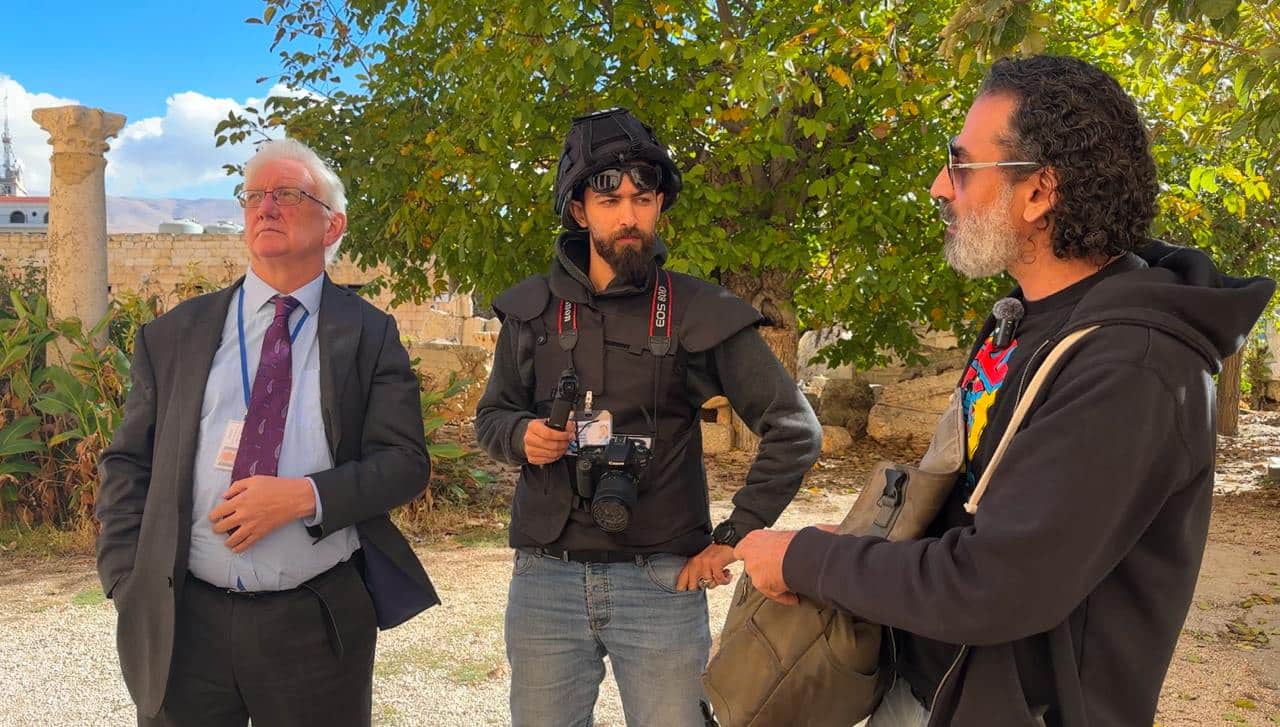On Thursday evening news came through that we had at long last gained the full list of approvals required to travel to report outside Beirut; we were cleared by the Ministry of Information, the Ministry of Defence, and the local authorities.
Laith Marouf of Free Palestine TV called me and suggested we go down together on Friday to the southern capital of Nabatieh, which has been enduring heavy bombing.
I asked Laith to give me half an hour, and did some quick research. Nabatieh is about 12 miles from the Israeli border and has been devastated by Israeli bombing attacks. In the South of the country some 70,000 homes have been destroyed. Following the Gaza model, hospitals, schools, mosques, waterworks, churches, bakeries have all been systematically taken out. In brief occupations Israel has demolished entire villages.
Israel has also deliberately destroyed the crops and livestock.
I read this brilliant article by Hanna Davis for Middle East Eye ten days earlier, which describes Nabatieh in apocalyptic terms. It is centred on interviews with the heroic civil defence workers, who are especially targeted by Israel.
Back at the hilltop, Fakih’s colleagues also spoke about the immense stress and psychological pressure they were under.
“Mentally, we are all struggling,” Hussein Jaber, 30, from Nabatieh’s civil defence, told MEE.
“We are struggling with the lack of stability. We are always on the move, can’t sleep well, and are being put in intense situations,” he said.
“We have to pull out the dead bodies of people we love, friends and families we know, neighbours, people from our own area.”
Since then, the situation had deteriorated even further. 100 people had been reported dead in Nabatieh in a fresh wave of airstrikes the day before.
It had not been exactly safe in Beirut since I had arrived, but now Laith had faced me with the inevitable question. Did I really have the courage to do what I had come to Lebanon in order to do? That is why I had asked for half an hour to research and think it over.
Well, I phoned Laith back and asked him what time we could start.
Laith is good company. A lifelong activist, he has been hounded and demonised by Zionists his entire career, which has centred on attempting to establish independent broadcasting platforms. He is currently trying to grow FreePalestineTV into a serious operation, and is full of cheerful facts about the relative reach of online and broadcast media. I do hope he succeeds.
The next morning Niels gathered his equipment and I took a spare jacket and tie, in case my suit got dusty. Laith arrived with his cinematographer, the debonair and intrepid Hadi Hotait, driving. Hadi’s car is a capacious SUV from which all signs of branding fell off many years ago, along with many other superfluous pieces. He appeared to have an entire film studio packed in the back. I should not have been surprised if, on arrival, a couple of extras had appeared from under the unfathomable mound.
Hadi navigated his way through the backstreets of Beirut between cars triple-parked so badly it seemed a physical impossibility to get between them. Hadi overcame this by the simple expedient of going very fast. I think his old car, like the DeLorean in Back to the Future, enters a different dimension at sufficient speed. I cannot imagine how else he did it.
While I was contemplating that the Israelis might not be as likely to kill me as Hadi’s driving, Laith blithely announced we were not going to Nabatieh after all. The bombing there was so intense this morning that the army had closed the road. We were therefore going to Baalbek instead.
I knew that 60 people had been killed in bombing the day before there. I hated to think what was happening in Nabatieh if it is more dangerous than Baalbek. But on the other hand I had long wanted to go to Baalbek and to see the famed Bekaa Valley, so I was quite pleased.
Fair Use Excerpt. Read the whole article here.

